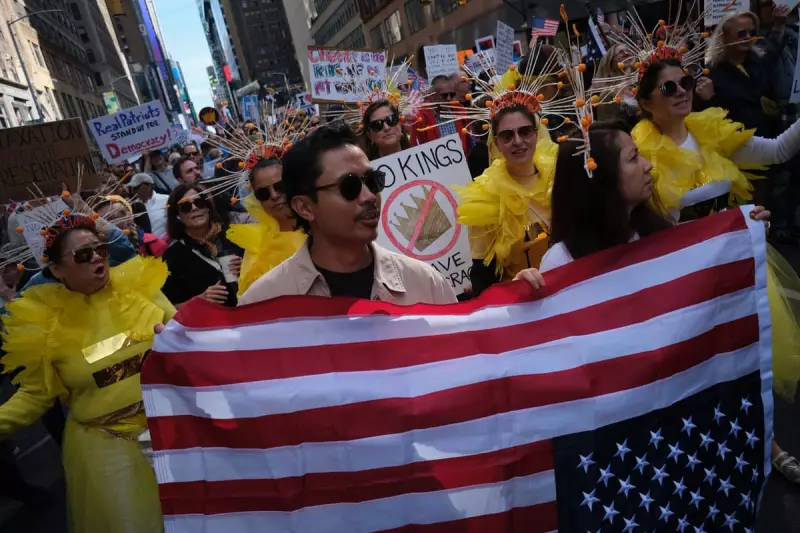
A digitally manipulated video featuring Donald Trump has ignited a political firestorm, raising fundamental questions about artificial intelligence's role in modern democracy. The former president shared an AI-generated clip purportedly showing George Washington declaring "there are no kings in America" - a statement experts confirm the founding father never made.
The Viral Deepfake That Shook the Campaign
The controversial footage emerged on Trump's social media platform, showing what appears to be America's first president delivering a stirring monologue about rejecting monarchy. Historical researchers quickly debunked the authenticity, noting both the anachronistic language and the technological impossibility of such a recording existing from Washington's era.
What makes this incident particularly alarming, according to digital forensics experts, is the sophistication of the fabrication. The video seamlessly blends historical imagery with artificially generated audio, creating a compelling but entirely fictional narrative about America's founding principles.
Democracy in the Age of Artificial Intelligence
Political analysts are sounding the alarm about the implications for the 2025 election cycle. Dr Eleanor Vance, a political communication specialist at Oxford University, warns: "We're entering uncharted territory where historical truth becomes malleable. When voters can't distinguish between genuine historical fact and AI-generated fiction, the very foundations of informed democracy are at risk."
The incident has triggered urgent discussions among policymakers about regulating political deepfakes. Several congressional representatives have called for immediate legislation requiring clear labelling of AI-generated political content.
Broader Implications for Global Democracy
This isn't an isolated incident. The 2024 election cycle saw numerous cases of AI manipulation, but experts note this represents a dangerous escalation. By co-opting historical figures and manipulating foundational American narratives, political actors are testing new boundaries in digital propaganda.
International observers are watching closely, as the techniques pioneered in American politics could easily transfer to other democracies. The UK's Electoral Commission has already begun reviewing its own safeguards against digital manipulation in political campaigning.
What Comes Next?
- Growing calls for bipartisan legislation regulating AI in political campaigns
- Increased scrutiny of social media platforms' content moderation policies
- Development of digital verification tools for voters and journalists
- Potential international cooperation on deepfake regulation
As the 2025 election season intensifies, this incident serves as a stark reminder that the battle for truth in politics has entered a new, technologically complex phase. The ability to distinguish fact from AI-generated fiction may become one of the most critical skills for voters in modern democracies.





